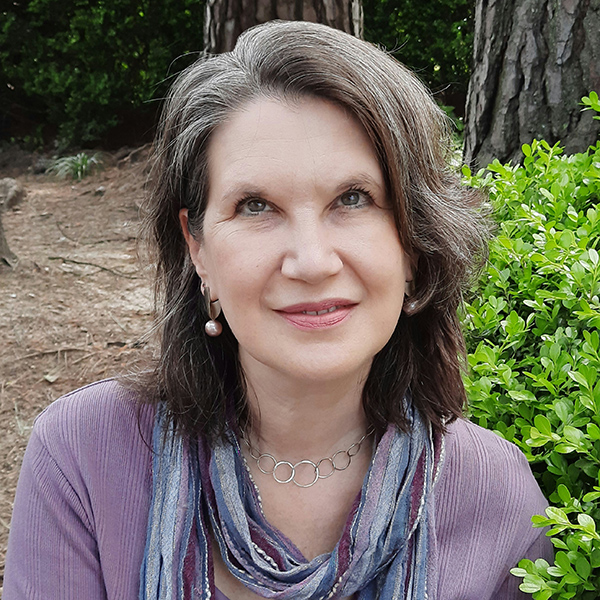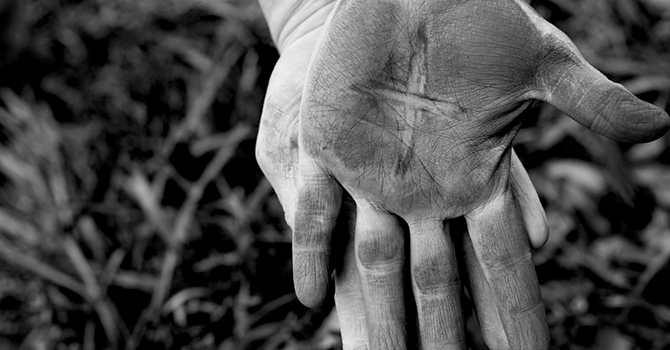Our Ash Wednesday service was at noon, so I got to church at 11. The voicemail light was blinking on my office phone — the number hardly anyone ever calls, because church members know they’ll reach me more quickly on my cell.
The message had been left the day before. The caller and her daughter, whom I’d never met, were in town for medical treatment at a local hospital. Would I be willing to bring them ashes?
Returning the call, I learned that the family had attended my church years before. Now the daughter was in her 20s, living with a serious yet manageable chronic disease that required specialized treatment from time to time. This was one of those times, and she and her mother would be tied up at the hospital all day.
That’s how I found myself in their nearby hotel room at 8 p.m., praying an abbreviated version of the Ash Wednesday liturgy, tracing ashen crosses on their foreheads, and sharing Communion with them. When our worship ended, they thanked me profusely — and I assured them the privilege was mine.
Imposing ashes always feels like a privilege to me. The moment my thumb touches each forehead is a tender and solemn one, whether I’m tracing my first cross of the day or my 100th. Like most pastors, I have marked the velvety foreheads of infants whose steady gaze is unclouded by any concept of death; of strangers and of people whose joys and sorrows I know well; of children of God who sleep outdoors, never knowing whether they will make it through the night without being robbed, beaten or worse; and of people in their 90s or with stage 4 cancer who reasonably expect they might not see another Lent.
Each year, the same words are offered to all who present their faces to receive ashes: “Remember that you are dust, and to dust you shall return.” The young woman from out of town was one of those needing no reminder of mortality. She might, therefore, have chosen to skip the annual rite. Instead, she sought it out.
Her desire to receive the strangest of the church’s blessings points to the beauty of Ash Wednesday and to our human need for the particular gift it offers. Her chronic disease was a daily companion, yet she was not alone in reckoning with death on this day. In the imposition of ashes, those who can’t deny their mortality are not objects of pity or of the avoidance that is its mirror image. They are not singled out as a sign of death lurking among the living. Instead, the ashes are that sign. The gift the ashes bear is that they are meant for everyone, because their truth applies to us all: we are dust, and to dust we will all return.
And in the time — be it long or short — between our creation and our demise, we are all in God’s care. I think that’s the other reason so many of us seek out ashes, even those who might not attend church the rest of the year. Knowing that we are mortal, we reach out for a sign that God is with us, that God loves us to the grave and beyond. We reach out for the cross.
Ash Wednesday is the day when some churches make a particular effort to take our message and ministrations out into the world. We offer “Ashes to Go” on sidewalks, at transit stations or outside church buildings for commuters who drop by on their way to or from work. We try to make it easy for people to receive a meaningful blessing even if they are reluctant to enter a church or have work schedules at odds with service times.
Many churches have realized that our institutional structures, our habitual ways of doing things, can be a barrier to sharing the gospel. On Ash Wednesday, we try to break down that barrier, or at least lower it slightly, to remember and remind each other that we all come from the same source and will all return to it.
My Ash Wednesday encounter with the sojourners in my town wasn’t “Ashes to Go.” It was more like “Uber Ashes” — delivery to people in need of a blessing. Although the recipients in this case were already church members, our encounter was a reminder that ministers are called to meet people where they are. Our visit left me searching for more ways to reach people who are unlikely to visit my church. We all know that their numbers are growing.
And yet this encounter also reinforced the value of institutions like a local parish church. The mother who called me reached out because she had worshipped at my church years before. She found my office number because we keep our website updated. And I can devote myself to full-time ministry because members of my church pledge a portion of their income to pay my salary, freeing me not only to care for them but also to be responsive to needs that come up in the community.
I share stories like my “Uber Ashes” encounter to prompt my congregation and myself to wonder how we can use our structures as a base from which to go out and meet the people we’re missing, to share with them and receive from them. How can we mesh flexibility and responsiveness with structure, trusting that God will use the combination to bless us all?
Almost two years after our impromptu Ash Wednesday liturgy, that mother called again. I pray for her and her daughter whenever I drive by the hotel where they stayed, and when I heard her voice on the phone, my first emotion was fear. Was her daughter in a health crisis or worse?
But she was calling to say she was mailing a thank offering to my discretionary fund. Her gratitude would help another beloved child of God through a tough moment. Her gift was a sign of her trust in the church to pass along God’s blessing, and of her fellowship with others who know they are dust — beloved dust held in God’s hands.
The gift the ashes bear is that they are meant for everyone, because their truth applies to us all: we are dust, and to dust we will all return.














